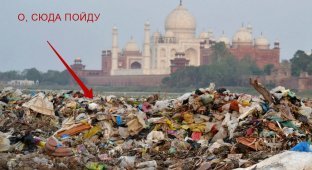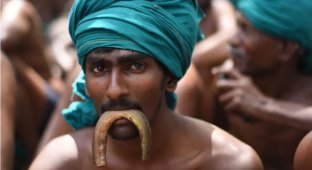Sorry, we don't care, the law is the law (5 photos)
A quiet country executes Western citizens without fear of sanctions. 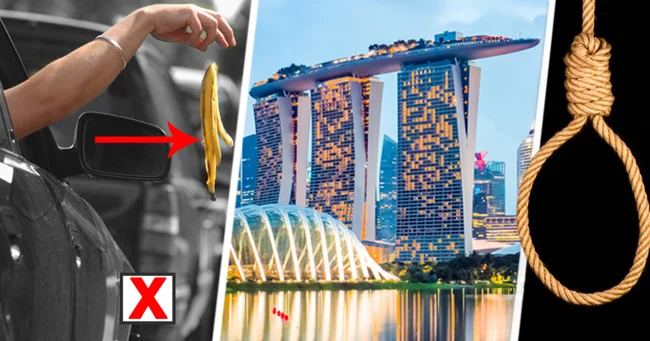
... At first glance, the city-state of Singapore (population 6 million) resembles one continuous amusement park. Huge skyscrapers, a Universal Studios attraction center showcasing global blockbusters, a garden with life-like Jurassic dinosaur figures, and "puppet" Chinese, Arab, and Indian quarters. The city is a global banking center, home to billionaires from the US, the Persian Gulf monarchies, and India. Much of the software is developed by local IT corporations. Even my ticket to Shanghai, which I bought from Moscow, was purchased through a travel agency headquartered in Singapore. 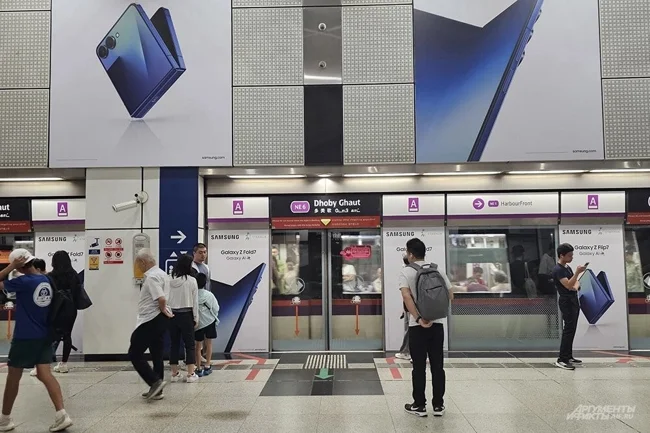
The Singapore dollar is one of the most stable and freely convertible currencies in the world. The country is frankly wealthy, with cafe and taxi fares comparable to New York City. The average salary in Singapore is $4,500 (!!!) per month. However, this wealthy republic has extremely harsh laws. Corporal punishment and the death penalty by hanging are common. For "humanitarian reasons," the noose is tightened and the prisoner falls into a manhole from a height—to ensure a broken neck. "According to opinion polls, 80% of Singaporeans support retaining the death penalty," comments former police officer Raj Ninjay. "And that's not even close—fifteen years ago, 95% supported the death penalty." Why does a prosperous, well-fed, and wealthy country with a very low crime rate continue to hang criminals and ignore Western demands for "human rights protection"?
Still, the noose. 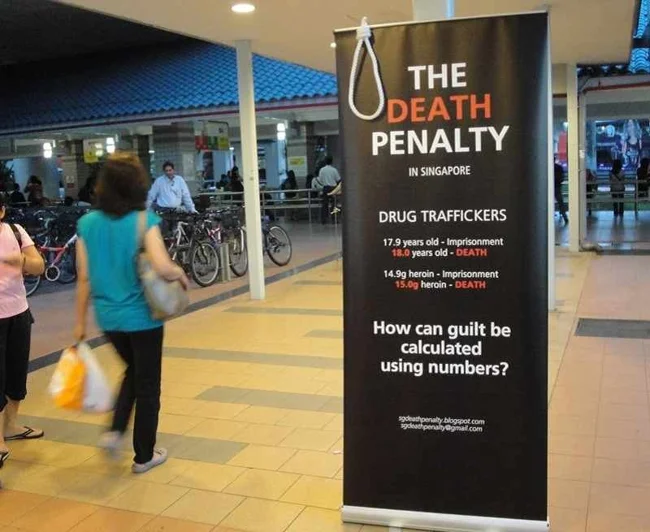
"From 1991 to 2011... "In Singapore, 450 people have been executed by court order," says lawyer Gerald Wang. "Seventy percent of them were for various drug trafficking offenses. Laws are very strict here. The penalty for smuggling 30 grams of cocaine, 30 grams of morphine, 500 grams of marijuana, and other prohibited substances into the country is hanging. The law is strictly enforced. Twenty years ago, 25-year-old Australian citizen (of Vietnamese descent) Nguyen Tuong Van was hanged in Singapore for smuggling 396 grams of heroin from Cambodia. Although Australia is Singapore's main ally in the region, and relations between the two countries are excellent, the Australian government was unable to influence the smuggler's fate.
Demonstrations have taken place in Australia demanding a trade boycott of our city and the severing of diplomatic ties, and the Australian Prime Minister has appealed for clemency for the convicted man. But the guy was still hanged, because the law is the law. Australia explained: they abolished the death penalty back in 1967, and that's right. But sorry, we don't really care—we're not Australians. If you want your citizens to stay alive, explain clearly to them that they'll face the gallows for drug trafficking. Threats of economic sanctions against Singapore had no effect either. And it's not just about foreigners—Singaporeans themselves aren't spared either. In 2023, 45-year-old Saridewi Jamani, a drug dealer, was executed. She pleaded for leniency because she was a woman. It didn't work."
Go to a better place. 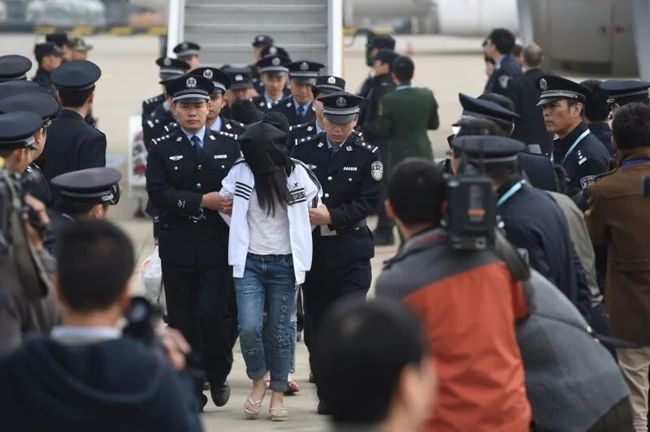
Supporters of the death penalty in Singapore argue that thanks to the existence of the "capital punishment," only ONE murder occurred in the city between 2020 and 2024. The country's residents are law-abiding, wealthy, and uninterested in risking their lives in such cases. Some also believe that hanging is retained due to the presence of migrant workers: Singapore actively employs foreign labor. Migrant workers from India, Malaysia, Vietnam, and Thailand come here. And they should be the ones who fear the inevitability of punishment for their crimes.
Singapore's former chief executioner, Darshan Singh, who retired in 2005, began his work under the British colonial rule. While placing the noose around the neck of the condemned, he would say, "I will send you to a better place. May God bless you!" Under his rule, from 1994 to 1998, Singapore ranked second in the world (!) for the number of death sentences per capita. Drug couriers, murderers, arms dealers, anyone who offered armed resistance to the police, and kidnappers were hanged. According to statistics, 36% of those hanged for criminal activity in Singapore were foreigners. At various times, citizens of Australia, the Netherlands, Portugal, and the United Kingdom were executed. No demands, threats of sanctions, requests, or pleas from the governments of the countries from which the criminals came to the city-state had any effect on the Singapore authorities – the sentences were carried out. "We are an independent state," explains businessman Harold Wang. "And if it turns out that the laws are not written for foreigners, our people will lose respect for their politicians. Personally, I believe that the harsh punishments keep the city quiet and peaceful."
Disneyland with a gallows. 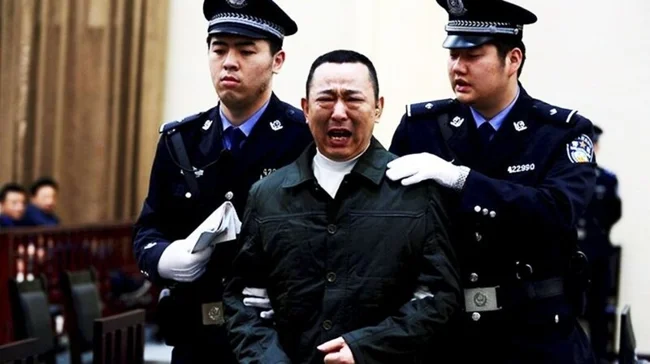
Whether this is true or not, there is certainly no leniency for criminals here. Incidentally, one of the first Singaporeans to end his life on the gallows was part-time law student Sunny Ang, who in 1965 brutally murdered his girlfriend, Jenny Chalk, while scuba diving for insurance money. In sixty years, Singapore's president has pardoned convicts only seven times, commuting their sentences to life imprisonment. American writer William Gibson, reporting from the city-state, mockingly called it "Disneyland with the death penalty." In response to any Western calls to abolish the death penalty, Singapore, whose policies are entirely pro-Western and pro-American, calmly responds that every country has the right to establish its own laws, without regard for the EU: the gallows helps ensure security in the republic, and executions are carried out only for "especially serious crimes." "I agree with this opinion," says Raj Ninjay. "We are not Europe. And we are not the only countries that have the death penalty—it also exists in Indonesia, Malaysia, Vietnam, and Thailand. Why then is there such outrage only about Singapore?" The fact that we are a rich country doesn't negate our obligation to ensure the safety of our citizens—maybe we are rich because we severely punish drug trafficking, murder, and kidnapping, making it clear that no one will escape justice."
I can't say with 100% certainty whether Singapore is doing the right thing or not. Let's be honest—it's an authoritarian, effectively one-party state, ruled first by Prime Minister Lee Kuan Yew for 30 years, and then by his son. Nevertheless, it's typical for such regimes to thoroughly kowtow to the West—for money, energy resources, and other perks. However, Singapore, a country of six million, pursues whatever policy it wants, ignoring the concerns of the EU, Australia, and New Zealand. "Don't break our laws, and we won't hang your citizens," Singaporean officials kindly explain. And the West has no choice but to accept the tiny country.



















